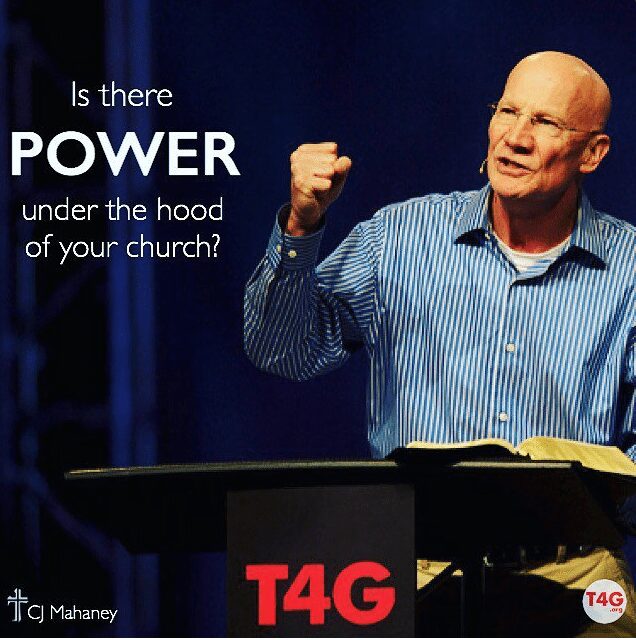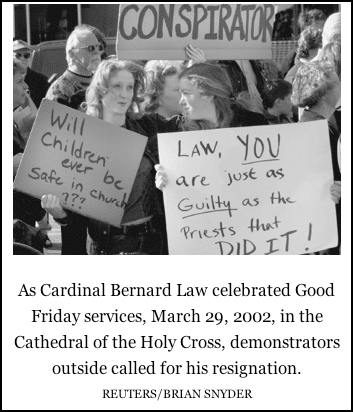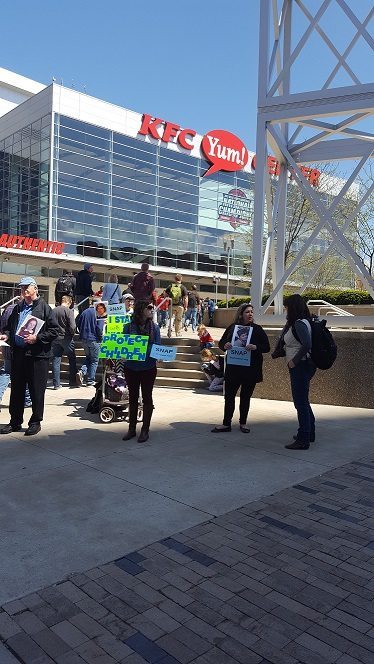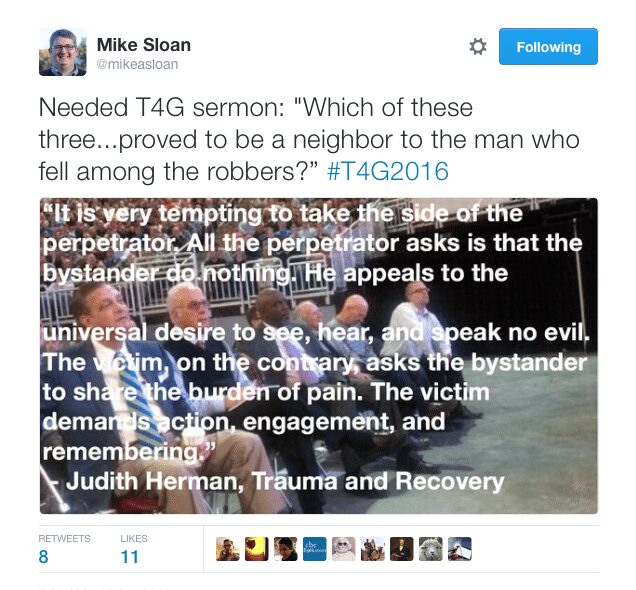
The Globe’s reporting used the Church’s own documents to demonstrate that high-ranking officials had for decades hidden the prevalence of the abuse problem and repeatedly put the welfare of abusive priests ahead of that of the children.
“Betrayal: The Crisis in the Catholic Church,” by the Investigative Staff of the Boston Globe
If religion cannot tell the truth about itself, it has nothing to say. Hypocrisy – professing one thing and performing the opposite – is the greatest moral violation. In approaching the crisis of clergy abuse, truth must be the preeminent goal. Truth – wherever found, however discovered, whatever it exposes – must be the agenda for any exploration of abuse by clergy. Anything that impedes unflinching directness, honesty, or clear unambiguous communication and confrontation of the facts will perpetuate the secret system in which abuse can continue and flourish.
All concerned citizens have a stake in the honesty of religious leaders. They should be a moral and cultural resource. Religion needs the help of all concerned women and men. Everyone is victimized by a system that fosters or tolerates abuse. It is not unholy or unseemly to be vitally interested in the performance of moral leaders. If religion was taught anything by the German holocaust of the Jews it is that standing by silently does not absolve from guilt. Institutional structures and behaviors are not above question or challenge.
A.W. Richard Sipe, “Sex, Priests and Power,” page 45
“He took everything. He took my innocence. He took my spirituality. He took my purity,” Timothy J. Lambert said of the priest who allegedly molested him – and his brother, he discovered years later – in a Queens, New York, parish, starting when he was in the sixth grade.
“How bad is it when your first sexual experience happens when you are unwilling, a minor, it’s a homosexual experience, and at the hands of a priest?”
Lambert started drinking within days of the first molestation. “It’s the way I medicated myself,” he now says.
“Betrayal: The Crisis in the Catholic Church,” by the Investigative Staff of the Boston Globe

The reference to “some of the teenage boys” includes Samuel Bates, Daniel Bates, Jeremy Cook, and Brian Wolohan. They are each named as victims in the December 13, 2012 indictments which are a matter of public record. I applaud their bravery. Other “boys” have also told investigators they were molested by Morales. I know all the families affected by these molestations except for one.
The evidence against Morales is rock solid. So is the evidence against Grant Layman regarding the conspiracy. Chris Glass worked for Grant Layman. He immediately reported the “youth group discussion” to his superior. Grant Layman worked for C.J. Mahaney. He too would have immediately reported because Defendant Mahaney was the senior pastor and required anything of this magnitude be brought to his attention. Layman is also Mahaney’s brother-in-law. Moreover, Mahaney knew Morales and was friends of the victims’ parents. In some cases, close friends!
Not only did Mahaney know all about Morales molestations, he was the one advising Layman not to involve law enforcement. According to the factual allegation, “Chris Glass cautioned [Roberts] and the other boys against talking about the facts.” This will be easy to prove at the up-coming jury trial on November 18. Glass was simply following the training he received from Layman and Mahaney. He is now a Captain in the United States Navy. I hope he is cooperating with law enforcement.
-Brent Detwiler, “Grant Layman & the Conspiracy Surrounding Nathaniel Morales.”

Sexual abuse victims and their supporters protesting outside the Together For the Gospel conference. April, 2016.

Boston may be the quintessential American Catholic city, yet the scandal soon proved to be far more than a local story. It became an international story about how the rights of powerless individuals are brushed away in the interests of a powerful institution, about how mortals can damage an immortal faith.If there are any heroes in this squalid tale, they are the victims, who found their voice, who found the courage, after years of suffering in silence and isolation, to step into the light and say, as one did, “This happened to me, and this is wrong.”
“Betrayal: The Crisis in the Catholic Church,” by The Investigative Staff of the Boston Globe